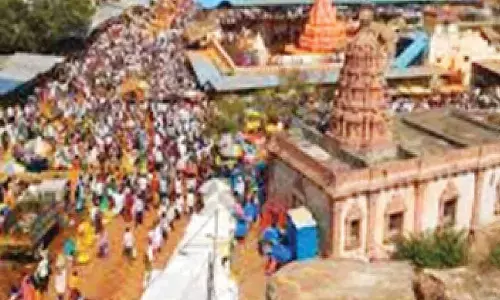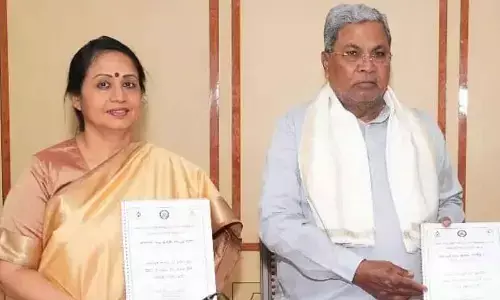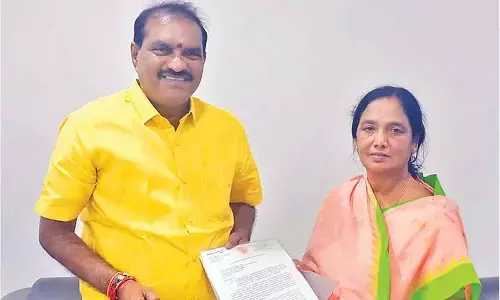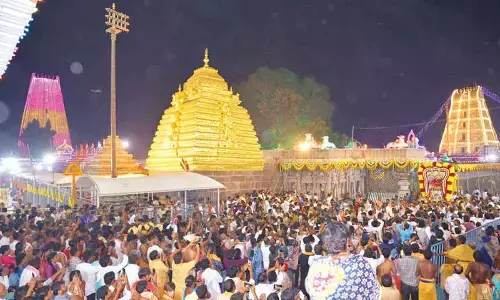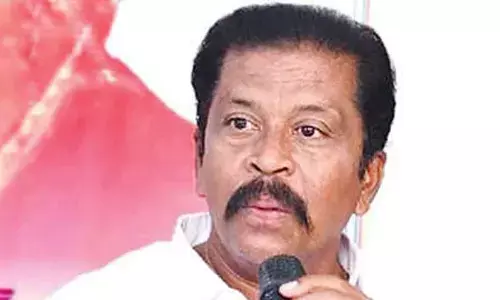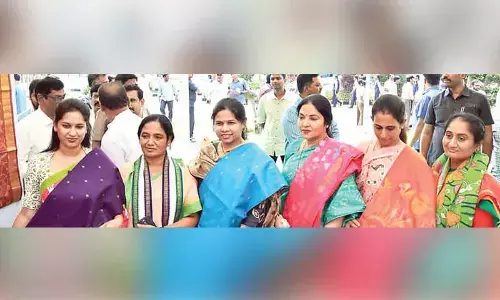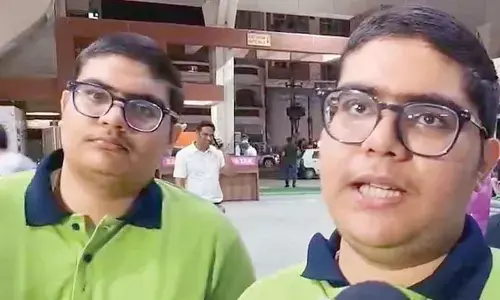Challenges to Indian democracy
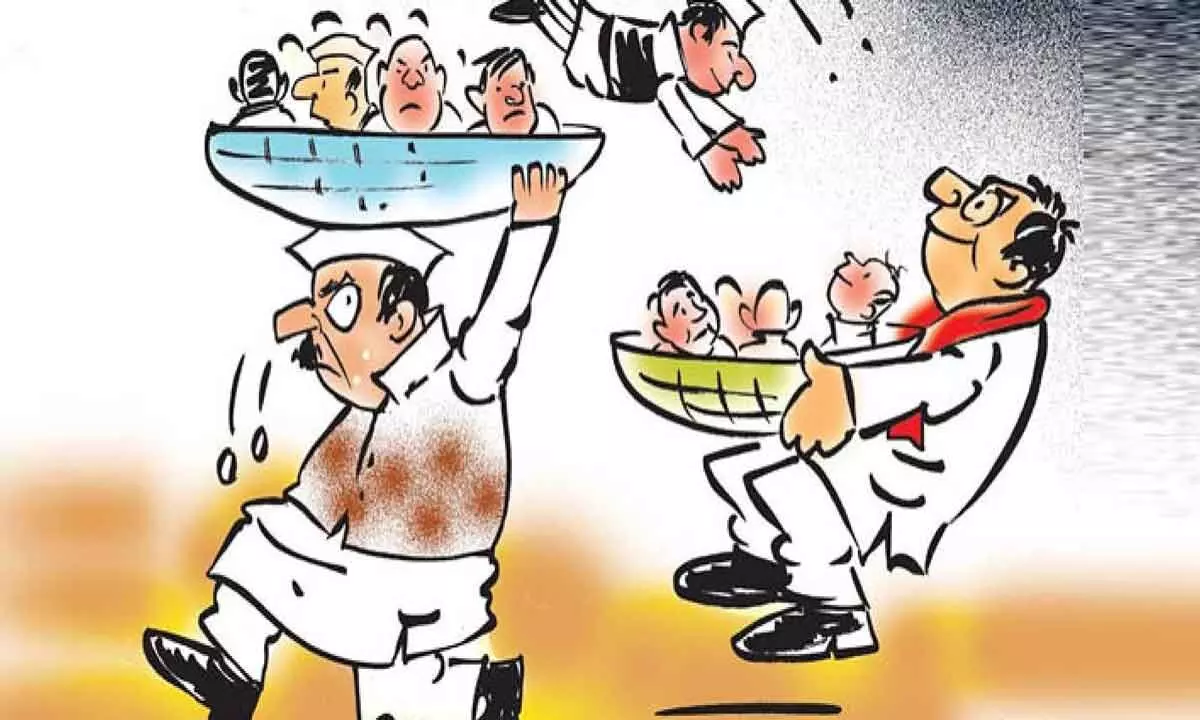
A research survey says 77% Indians are satisfied with the way democracy is working in India. Though, democracy survives and continues to be vibrant in India, what needs to be pondered over is why the remaining 33% people are unhappy with democracy. If the political thinking and attitudes of the politicians do not change, the possibility of 33% of unhappy people can go up sooner than later. People are upset about the vitriolic which is getting personal both inside and outside the legislature. The lack of concern for public affairs is leading to waste of time and public money, and debates and discussions are taking a back seat. Rampant defections, too, are putting off the public
“Not too many more vibrant democracies in the world than India. And we applaud the Indian people for exercising, you know, their ability to vote, and to have a voice in their future government,” commented the White House in 2023. “India is the world’s most vibrant democracy and its image cannot be allowed to be tainted or tarnished by anyone,” Vice President Jagdeep Dhankhar said recently at a meeting.
The Pew Research Center which is a nonpartisan American think tank based in Washington, D.C., and provides information on social issues, public opinion, and demographic trends shaping the United States and the world, conducted a survey according to which 77% of Indians are satisfied about the way democracy is working in India despite certain aberrations like the Emergency in 1975 and chaotic governance by some political parties in some States.
The resilience of the people of India had helped them overcome such problems and the system called election had given great opportunity to see that democracy survives and continues to be vibrant.
This has been possible because the democratic system in India is based on the principles of federalism, parliamentary democracy, and a multi-party system. The country has a Constitution that lays down the framework for the functioning of the government and the distribution of powers between the central government and the state governments.
But what really pains is that there have been some recent examples where the politicians refuse to look at the bright side of democracy. At the national level, the Congress is not ready to say Emergency was a wrong decision and the nation learnt a lesson. They don’t want anyone to either refer to it or talk about it. They feel it is headline grabbing exercise. Why this ego? Why not have the courage to accept their misdeeds? Not just Emergency, even the 1984 massacre of Sikhs and the comment – when a tree falls some tremors occur – by Rajiv Gandhi cannot be forgotten.
The Congress party which talks about being the defenders of the Constitution cannot afford to remove the page called Emergency and the way they had unleashed dictatorship on the people of this country just because the party head, the Iron lady, Indira Gandhi, did not want to give up power. Surprisingly, that kind of tendency still exists among many young leaders as well. They refuse to accept that winning or losing elections is part of democratic process, which is appreciated and supported by 77% of the people in the country. What needs to be pondered over is why 33% people are unhappy with democracy. If the political thinking and attitudes of the politicians do not change, the possibility of 33% of unhappy people can go up sooner than later.
We have seen how the YSRCP chief and former Chief Minister Y S Jagan Mohan Reddy is still not able to accept the defeat. He says they have benefited every family in the state, yet they rejected him. He feels that the people of Andhra Pradesh have not been grateful to him. Why can’t he realise that it is not enough for one to think that he had done good? It is the people who should feel that the government had rendered some good service.
If we have to list out why the YSRCP lost, well, the list of reasons will be too long and have been mentioned many times since the results were out on June 4. So is the case with the BRS in Telangana. KCR and KTR feel that they have done a lot of good and people took a wrong decision in voting for Congress. The people are now repenting, they claim. Even till date, the party leadership including its working president K T Rama Rao is unable to accept the people’s verdict.
The problem is they feel that only they have right to criticise everyone and no one, whether he be a politician or a common man, has any right to make any comment against them even on ‘X’ handle. If anyone does that, they block them. This is how they want to protect the Constitution and democracy.
The pink party has been unable to prevent migrations of MLAs to the Congress party. It is certainly unfortunate that the practice of ‘Aaya Ram Gaya Ram’ continues despite anti-defection law thanks to loopholes in the Act which no party, whether the Congress or the BJP, so far had tried to plug and no regional party insisted or proposed any concrete amendments to it.
Even the self-styled protectors of the Constitution, whether it be the Leader of Opposition Rahul Gandhi or bloc INDI who keep thumping the desks when Rahul looks at them and speaks instead of addressing the Speaker, are silent on this aspect.
This situation can change if any political party takes a bold decision saying that come what may they will admit any migrant leader into the party fold only when he or she resigns from his/her post and agrees to seek fresh mandate whether he be an MP or MLA, they will have the moral right to put pressure on the government to go in for strong anti-defection law and come up with foolproof system where migrations can be controlled. This they won’t do but will keep accusing one another of encouraging defections.
The vitriolic becomes personal both inside and outside the legislature. Instead of basing their arguments on facts and ground situation, the sessions are converted into battlegrounds to settle personal scores and the proceedings get polluted with verbal attacks counter attacks, protests, dharnas and the sparring reaches a new peak wherein they accuse the chair of being partisan in behavior.
The lack of concern for public affairs is leading to waste of time and public money and debates and discussions are taking a back seat. That is one of the reasons why only 77% of the people are happy with democracy.
The happiness of the people regarding democracy in India can certainly cross the happiness index of Singapore which according to PEW Research is 80%, if our leaders start thinking positively and focus on good governance. The party in power should have a solid vision of resolving the problems faced by the people which should be discussed and debated with an open mind so that the ills can be eradicated.
For example, Andhra Pradesh Chief Minister N Chandrababu Naidu, while addressing the CII council meeting on Thursday, proposed P4 model to eradicate poverty wherein the energy and funds of corporate and government spending can be integrated and utilised in a focused manner to provide quality education, skill development and employment generation which can help in reducing the poverty levels in the country at a faster pace. This certainly is an idea that needs to be discussed in depth.
If the leaders utilise their intelligence and time in coming up with innovative ideas, certainly the happiness index will go up further, and India will become the most vibrant democracy in the world.


